Food & Beverage
Top 10 Beverage Brands in North America to Watch in 2024

The Top 10 Beverage Brands in North America to Watch in 2024 are setting the stage for a dynamic shift in the beverage industry. These brands aren’t just leaders in their category—they’re shaping the future of what we drink and how we experience beverages. From sustainability efforts to cutting-edge innovation, they are redefining what success looks like.
In this article, we analyse the top brands of 2024, ranked from #10 to #1, based on key metrics like brand recognition, market share, product innovation, financial performance, and more. Through this ranking, we’ll uncover the strategies driving their growth and the trends they’re pioneering in the evolving North American beverage landscape.
10. Keurig Dr. Pepper: Brewing Up Innovation, But Needs Focus on Sustainability and Reach
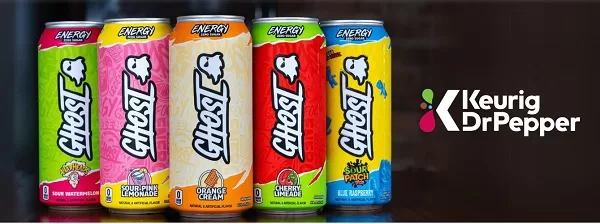
Source: Keurig Dr Pepper
Brand Overview
Keurig Dr Pepper (KDP) is one of North America’s leading beverage brands, known for its wide array of popular products, including Dr Pepper, Snapple, and Keurig coffee systems. The company has carved out a strong position in the market with its blend of traditional beverages and innovative solutions, although it faces rising competition from both established brands and newer companies focusing on health and sustainability.
Performance Snapshot
| Metric | Score |
| Brand Awareness | 15 |
| Market Share | 13 |
| Product Quality | 13 |
| Innovation | 13 |
| Sustainability Practices | 9 |
| Financial Performance | 12 |
| Distribution Network | 8 |
| Customer Satisfaction | 7 |
| Total Score | 90 |
Metrics Breakdown
Brand Awareness and Loyalty (15 points):
Keurig Dr Pepper (KDP) benefits from a strong portfolio of iconic brands like Dr Pepper, Snapple, and Keurig coffee systems, which have fostered significant brand recognition and loyalty, helping it maintain a solid market foothold.
Market Share & Growth (13 points):
KDP shows steady growth but faces increasing competition from legacy brands and new health-focused players, putting pressure on its market share amid shifting consumer preferences.
Product Quality & Innovation (13 points):
KDP excels in innovation with products like Keurig coffee systems and reduced-sugar, zero-calorie beverages. However, it needs to diversify further to appeal to health-conscious consumers.
Sustainability & Ethical Practices (9 points):
KDP has progressed with sustainability, reducing plastic waste and improving water conservation. However, it must enhance its supply chain practices to meet growing consumer demand for eco-friendly and ethically sourced products.
Financial Performance (12 points):
KDP shows stable revenue driven by its diverse portfolio, though fluctuating commodity costs and competition impact profitability. Despite challenges, its revenue stability remains a strength.
Distribution Network & Reach (8 points):
While KDP has a strong U.S. market presence, its international reach is limited. Expanding into emerging markets is crucial for future growth.
Customer Satisfaction & Feedback (7 points):
Customer feedback indicates a growing demand for healthier and more sustainable products. KDP must adapt to these shifting preferences to maintain its loyal customer base.
Unique Strategies or Highlights
KDP’s Keurig coffee systems have been a game-changer, transforming the coffee market and giving the company an edge in the homebrewing category. On the beverage front, the brand has focused on providing reduced-sugar and zero-calorie versions of its popular drinks, responding to the growing demand for healthier alternatives. However, the brand’s ability to innovate with functional or plant-based beverages will determine its future success in an increasingly health-conscious marketplace.
Final Thoughts
Keurig Dr Pepper has a solid foundation in North America’s beverage market, with iconic brands that resonate strongly with consumers. However, as competition intensifies, especially from brands that emphasise health, sustainability, and functional ingredients, KDP will need to adapt. Strengthening its commitment to eco-friendly practices, expanding its international presence, and enhancing its product offerings will be key to securing its place in the future of the beverage industry.
9. Monster Beverage: Dominating Energy Drinks, But Falling Short on Sustainability
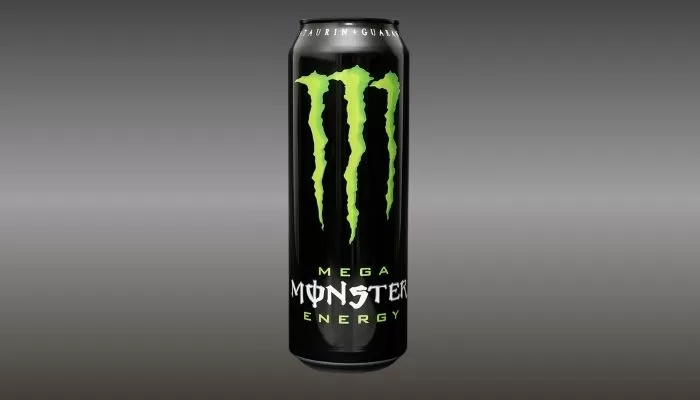
Source: Wikipedia
Brand Overview
Monster Beverage is a dominant force in the energy drink market, recognised globally for its bold branding and wide range of products. Known for its high-caffeine energy drinks, Monster has built a loyal following with its aggressive marketing and consistent product offerings. However, the company faces increasing competition from health-conscious brands and must address growing consumer demand for eco-friendly practices and healthier ingredients.
Performance Snapshot
| Metric | Score |
| Brand Awareness | 15 |
| Market Share | 14 |
| Product Quality | 14 |
| Innovation | 14 |
| Sustainability Practices | 7 |
| Financial Performance | 12 |
| Distribution Network | 8 |
| Customer Satisfaction | 8 |
| Total Score | 78 |
Metrics Breakdown
Brand Awareness & Loyalty (15 points):
Monster’s distinct logo and marketing campaigns have contributed to a powerful brand identity, earning it a loyal customer base. Its bold, energetic branding appeals to young adults, creating a strong, recognisable presence in the energy drink market.
Market Share & Growth (14 points):
With a dominant position in the energy drink sector, Monster has shown steady market share growth. However, it is increasingly challenged by new, health-focused competitors offering organic, low-sugar, or natural energy options.
Product Quality & Innovation (14 points):
Monster continues to innovate by introducing new flavours, functional beverages (e.g., energy drinks with added electrolytes), and lower-calorie options. While the brand has diversified, it still faces the challenge of appealing to health-conscious consumers.
Sustainability & Ethical Practices (7 points):
Sustainability is a key area where Monster lags. Despite being a leader in the energy drink category, it has been criticised for its environmental footprint, particularly packaging waste. The brand needs to ramp up efforts to become more sustainable and align with consumer expectations for eco-friendly practices.
Financial Performance (12 points):
Monster shows strong financial results, driven by a wide portfolio of products and consistent revenue growth. However, it faces pressures from raw material cost fluctuations and intense competition, which impacts profit margins.
Distribution Network & Reach (8 points):
Monster’s distribution network is extensive, with widespread availability in North America and a growing global presence. However, the brand faces challenges in penetrating certain international markets where health-focused alternatives are gaining traction.
Customer Satisfaction & Feedback (8 points):
Customer feedback highlights that while Monster retains a loyal fanbase, consumer expectations are shifting toward healthier, lower-sugar alternatives and greater product transparency. Monster needs to address these concerns to maintain satisfaction in the long term.
Unique Strategies & Highlights
Monster stands out with its bold branding, extensive flavour range, and collaborations with extreme sports and music events, which resonate with its target audience. Its ability to adapt to consumer trends, like offering low-calorie and functional drinks, sets it apart. Additionally, its strong North American distribution and recent expansion into functional beverages like “Monster Energy +” showcase its efforts to diversify beyond traditional energy drinks.
Final Thoughts
Monster Beverage has maintained its dominance in the energy drink market with strong brand loyalty, consistent product innovation, and robust financial performance. However, the company faces significant challenges in sustainability and must adapt to the growing trend for healthier, more eco-conscious products. By focusing on these areas, Monster can ensure it remains a leader in the energy drink sector while also expanding its appeal to a broader, health-conscious audience.
8. Dr Pepper Snapple Group: Strong Legacy, Needs Focus on Sustainability and Global Reach

Brand Overview
Dr Pepper Snapple Group is a prominent player in the beverage industry, known for its diverse portfolio of iconic drinks like Dr Pepper, 7UP, and Snapple. With a long history and a strong consumer base, the brand has maintained its position as a major force in the soft drink market. Despite facing increasing competition from health-conscious alternatives, the brand continues to enjoy a solid market presence and consumer loyalty.
Performance Snapshot
Performance Snapshot
| Metric | Score |
| Brand Awareness | 15 |
| Market Share | 14 |
| Product Quality and Innovation | 14 |
| Sustainability Practices | 8 |
| Financial Performance | 12 |
| Distribution Network | 9 |
| Customer Satisfaction | 7 |
| Total Score | 79 |
Metrics Breakdown
Brand Awareness & Loyalty (15 points):
Dr Pepper Snapple Group benefits from its extensive portfolio of well-known drinks that have earned strong consumer attachment over the years. Its iconic beverages like Dr Pepper and Snapple contribute to its brand recognition and loyalty, allowing it to maintain a dominant position in the market.
Market Share & Growth (14 points):
The brand has a dominant market share in the soft drink category, but faces increased competition from health-conscious beverage brands. While it has maintained steady growth, it needs to adapt to the shift towards healthier drinks and alternative beverages.
Product Quality & Innovation (14 points):
Dr Pepper Snapple Group is committed to product innovation, regularly introducing new flavours, low-calorie options, and speciality drinks to meet changing consumer preferences. However, it needs to expand its health-focused product line to stay competitive in a market increasingly driven by health-conscious trends.
Sustainability & Ethical Practices (8 points):
The company has progressed in areas like reducing water usage and improving recycleability in its packaging. However, there is still room for improvement in terms of overall environmental impact and ethical sourcing practices. As consumer demand for sustainable products grows, Dr Pepper Snapple Group must invest further in sustainability.
Financial Performance (12 points):
The company has demonstrated steady revenue growth and financial stability. However, rising costs and market changes in the beverage industry have placed some pressure on its profitability. Its financial performance remains strong, but continued cost management will be key to future success.
Distribution Network & Reach (9 points):
While Dr Pepper Snapple Group has a strong presence in North America, its global expansion remains a work in progress. To continue growing, the brand will need to focus on expanding its international distribution and reaching emerging markets.
Customer Satisfaction & Feedback (7 points):
Customer feedback indicates a need for the company to align more closely with shifting consumer preferences, particularly around healthier options and sustainable practices. While it retains a loyal customer base, the company faces challenges in meeting the growing demand for natural ingredients, low-sugar options, and eco-friendly packaging.
Unique Strategies & Highlights
Dr Pepper Snapple Group has succeeded in its legacy and brand loyalty to maintain a strong consumer following. The introduction of low-calorie and speciality drinks showcases the brand’s ability to innovate and adapt to changing consumer needs. However, its continued focus on health-focused products and sustainability will be essential for long-term success, especially in an increasingly eco-conscious market.
Final Thoughts
Dr Pepper Snapple Group excels in brand recognition and consumer loyalty due to its iconic portfolio and strong market position. However, it faces challenges in sustainability and the shift towards healthier and more sustainable products. To stay competitive, the brand will need to continue its innovation efforts and expand its international reach, especially in emerging markets.
7. Heineken: A Global Icon with Strong Market Presence, but Must Adapt to Emerging Trends
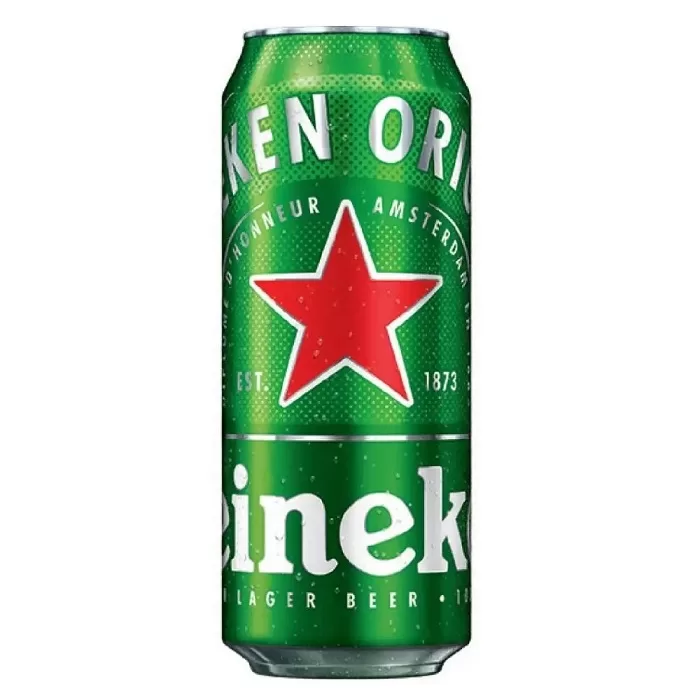
Source: Heineken
Brand Overview
Heineken is a global leader in the beer industry, known for its distinctive green bottle and premium lager. With strong brand recognition and a loyal global following, Heineken has firmly established itself as one of the top beer brands in the world. Despite facing increasing competition from craft beers and the rise of health-conscious alternatives, Heineken continues to innovate and maintain a prominent market position.
Performance Snapshot
| Metric | Score |
| Brand Awareness | 15 |
| Market Share | 14 |
| Product Quality | 14 |
| Innovation | 14 |
| Sustainability Practices | 9 |
| Financial Performance | 13 |
| Distribution Network | 8 |
| Customer Satisfaction | 8 |
| Total Score | 81 |
Metrics Breakdown
Brand Awareness & Loyalty (15 points):
Heineken enjoys exceptional brand recognition, with its iconic green bottle and consistent product quality contributing to a loyal global following. The brand’s longstanding presence in the beer market has made it a household name, ensuring consumer loyalty in both developed and emerging markets.
Market Share & Growth (14 points):
Heineken continues to dominate many regions globally, although it faces growing competition from craft beers and local breweries in emerging markets. Despite this, the brand has sustained its market share with strong sales performance across various regions, though it will need to adapt to local preferences and increase market penetration in developing countries.
Product Quality & Innovation (14 points):
Heineken maintains a strong focus on product innovation, offering a variety of options like Heineken 0.0, a non-alcoholic beer that taps into the growing demand for health-conscious beverages. The brand’s commitment to quality and continuous innovation in expanding its product range has helped it stay competitive in an evolving market.
Sustainability & Ethical Practices (9 points):
While Heineken has made significant strides in sustainability, including efforts to reduce water usage and carbon emissions, there is still room for improvement. The company must focus on further aligning with sustainability goals and increasing environmental responsibility across its operations and product packaging to meet consumer expectations for eco-friendly brands.
Financial Performance (13 points):
Heineken has shown steady profitability, with strong earnings across several global markets. While the brand has maintained its financial stability, it faces challenges in certain regions, particularly those affected by economic fluctuations and changing consumer demands. Continued focus on cost management and regional strategies will be key to sustaining financial growth.
Distribution Network & Reach (8 points):
Heineken enjoys a strong global presence but faces challenges in expanding its reach in emerging markets. Despite its extensive distribution network, Heineken’s performance in these regions has been affected by the rise of local and craft beer brands. The brand needs to adapt its strategies for international market expansion to continue growing in these competitive areas.
Customer Satisfaction & Feedback (8 points):
Shifting consumer preferences, particularly toward craft beers and healthier options, have impacted Heineken’s customer satisfaction. While the brand maintains a strong following, it must better align with the evolving demand for craft beer, alcohol-free options, and health-conscious alternatives to maintain positive feedback.
Unique Strategies/Highlights
Heineken’s strong brand identity and global recognition set it apart in a competitive market. The brand’s introduction of Heineken 0.0 reflects its proactive approach to meeting consumer demand for healthier and non-alcoholic options. To continue thriving, Heineken will need to focus on sustainability and further product diversification to capture new, more health-conscious consumers while maintaining its dominance in traditional beer markets.
Final Thoughts
Heineken remains a global beer leader with a strong legacy of brand loyalty and innovation. However, the company must focus on sustainability and adapt to the increasing demand for craft beers, health-conscious beverages, and eco-friendly practices. As it continues to strengthen its market share in established regions, Heineken’s ability to expand in emerging markets and address shifting consumer preferences will be critical to its continued success.
6. Red Bull: A Global Leader in Energy Drinks, but Faces Challenges in Sustainability and Diversification
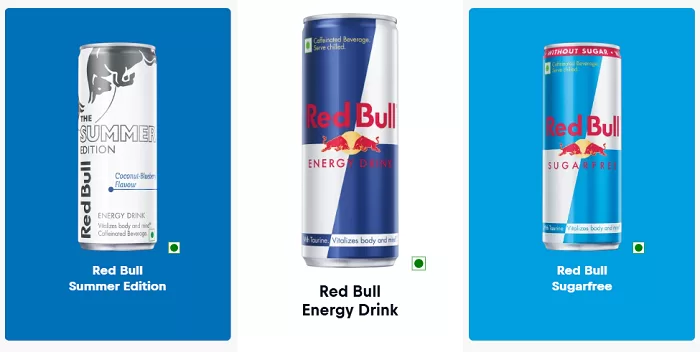
Source: Red Bull
Brand Overview
Red Bull has solidified its position as a global leader in the energy drink market, with a strong presence in over 170 countries. Known for its bold marketing campaigns, such as the Red Bull Stratos jump, and a reputation for product consistency, Red Bull has created a lasting brand identity. While the brand excels in brand recognition and market expansion, it faces rising pressure from newer, health-conscious energy drinks and increasing consumer demand for functional beverages.
Performance Snapshot
Performance Snapshot
| Metric | Score |
| Brand Awareness | 16 |
| Market Share | 15 |
| Product Quality | 13 |
| Innovation | 13 |
| Sustainability Practices | 8 |
| Financial Performance | 14 |
| Distribution Network | 9 |
| Customer Satisfaction | 8 |
| Total Score | 83 |
Metrics Breakdown
Brand Awareness & Loyalty (16 points):
Red Bull boasts exceptional brand recognition, cementing its status as a household name worldwide. The brand’s strong, loyal customer base is driven by its consistent quality, iconic blue and silver cans, and successful marketing strategies, such as sponsoring extreme sports events and athletes. This has allowed Red Bull to establish a strong emotional connection with its audience.
Market Share & Growth (15 points):
Red Bull’s market share continues to expand steadily, aided by its creative marketing and global distribution. Despite competition from both traditional and emerging energy drink brands, Red Bull’s ability to maintain its dominant position in many regions reflects a solid growth trajectory. However, the brand faces challenges in emerging markets where consumer preferences are shifting towards healthier alternatives.
Product Quality & Innovation (13 points):
While Red Bull maintains its reputation for product consistency, the brand’s lack of significant product diversification compared to some competitors is a notable limitation. As the demand for healthier and functional beverages increases, Red Bull has been slower to introduce new products outside its traditional energy drink offering. This could hinder its ability to capture the growing wellness-orientated consumer segment.
Financial Performance (14 points):
Red Bull has continued to show impressive financial performance, generating strong revenues year after year. However, rising production costs and market saturation could challenge future growth. The company will need to adapt its business model to continue maximising profitability amid increasing competition and potential economic downturns in key markets.
Sustainability & Ethical Practices (8 points):
While Red Bull has made strides in reducing its environmental impact, there is significant room for improvement. The brand has made efforts to minimise packaging waste and energy consumption, but it still lags in areas like sustainable sourcing and eco-friendly production methods. Consumers, particularly younger generations, are increasingly holding brands to higher standards when it comes to corporate responsibility.
Distribution Network & Reach (9 points):
Red Bull’s distribution network is extensive, ensuring the brand is available in over 170 countries. While the company has a strong presence in established markets, its penetration into emerging regions could be more aggressive. Tapping into rapidly growing markets, particularly in Asia and Africa, could significantly boost Red Bull’s global growth prospects.
Customer Satisfaction & Feedback (8 points):
Customer feedback for Red Bull remains generally positive, but there is growing demand for healthier, lower-sugar options in the energy drink market. As consumers become more health-conscious, the brand may face challenges in maintaining customer satisfaction unless it evolves to meet these changing preferences with innovative products or reformulations.
Unique Strategies/Highlights
Red Bull’s innovative marketing strategies, such as sponsorship of extreme sports and unique events, have played a key role in maintaining its position as a top energy drink brand. However, its product diversification lags behind competitors, especially those that are expanding into healthier functional drinks. To remain competitive, Red Bull must address these gaps and develop products that cater to the growing demand for health-conscious beverages.
Final Thoughts
Red Bull’s dominance in the energy drink market is undisputed, but the brand must adapt to changing consumer preferences for healthier alternatives and sustainable products. To stay ahead, Red Bull should focus on expanding its product offerings and enhancing sustainability practices. Its next challenge will be to balance its brand loyalty with innovation in response to the evolving market landscape.
5. Diageo: A Global Leader in Spirits with Room for Sustainable Growth
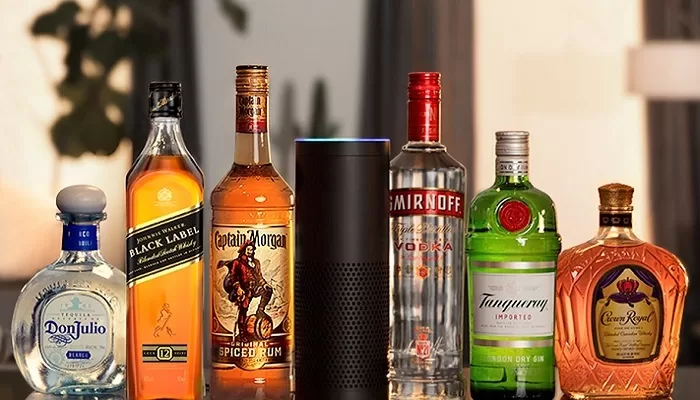
Brand Overview
Diageo is a global leader in the beverages industry, renowned for its iconic brands like Johnnie Walker and Guinness. With a strong presence in both established and emerging markets, Diageo has cultivated a loyal customer base worldwide. The brand’s ability to adapt and innovate has played a key role in its continued success, though it faces increasing demand for more sustainable and health-conscious products.
Performance Snapshot
Performance Snapshot
| Metric | Score |
| Brand Awareness | 16 |
| Market Share | 15 |
| Product Quality | 15 |
| Innovation | 15 |
| Sustainability Practices | 8 |
| Financial Performance | 13 |
| Distribution Network | 9 |
| Customer Satisfaction | 8 |
| Total Score | 8 |
Metrics Breakdown
Brand Recognition & Loyalty (16 points):
Diageo has built a solid reputation through its renowned brands, such as Johnnie Walker and Guinness, earning high brand recognition and strong loyalty globally. These well-established names help Diageo maintain its dominance in the competitive spirits market.
Market Share & Growth (15 points):
With its premium and craft spirits continuing to gain popularity, Diageo enjoys steady market share growth. Its global presence and consistent expansion into both developed and emerging markets contribute significantly to its strong position in the spirits industry.
Product Quality & Innovation (15 points):
Diageo excels in product quality and innovation, constantly evolving its range of spirits, from new whisky expressions to expanding into low-alcohol and non-alcoholic options. The brand’s ability to adapt to changing consumer preferences positions it well in an increasingly dynamic market.
Sustainability & Ethical Practices (8 points):
While Diageo has made strides in reducing its environmental impact—including water and energy conservation in production—its sustainability efforts are still evolving. There is significant room for improvement in aligning with growing consumer demand for more eco-friendly and ethically sourced products across the entire supply chain.
Financial Performance (13 points):
Diageo shows steady growth in its financials, underpinned by its diverse portfolio. However, it faces challenges from fluctuating raw material costs and shifts in consumer spending habits, which could impact future profit margins.
Distribution Network & Reach (9 points):
With a strong global footprint, Diageo has significant reach, but its ability to penetrate certain emerging markets remains an area of opportunity. Expanding its presence in these regions could drive additional growth.
Customer Satisfaction & Feedback (8 points):
Customer feedback for Diageo indicates concerns around price points and a growing demand for healthier or more eco-conscious products. Addressing these concerns will be essential for maintaining its loyal customer base.
Unique Strategies & Highlights
Diageo stands out through its strategic innovations, including the launch of premium products and a growing portfolio of low-alcohol and non-alcoholic options. Its strong brand presence, particularly in premium spirits, helps the company appeal to a wide range of consumers. The company’s commitment to innovation has allowed it to stay competitive in the global market while addressing trends toward health-conscious and sustainable drinking choices.
Final Thoughts
Diageo has built a strong foundation in the global beverage industry with iconic brands and consistent product innovation. However, to remain competitive, the brand must focus on improving its sustainability practices, catering to health-conscious consumers, and expanding its reach in emerging markets. By addressing these areas, Diageo will strengthen its position as a leader in the future of the spirits market.
4. Nestlé: Strong Growth and Innovation, Yet Hindered by Ethical Concerns

Brand Overview
Nestlé is a global leader in the beverage industry, known leader for iconic brands like Nescafé, KitKat, and Maggi. The company excels in innovation, offering health-conscious products and expanding into plant-based foods and functional nutrition. Despite its strong market position and consumer trust, Nestlé faces challenges in product transparency and ethical sourcing, with increasing scrutiny over its environmental impact. As the brand continues to grow in emerging markets, it must balance growth with sustainability and consumer expectations.
Performance Snapshot
Performance Snapshot
| Metric | Score |
| Brand Awareness | 17 |
| Market Share | 16 |
| Product Quality | 14 |
| Innovation | 14 |
| Sustainability Practices | 8 |
| Financial Performance | 13 |
| Distribution Network | 9 |
| Customer Satisfaction | 7 |
| Total Score | 84 |
Metrics Breakdown
Brand Awareness & Loyalty (17 points):
Nestlé enjoys unparalleled brand recognition thanks to its legacy of consumer trust and a diverse portfolio of well-established brands. Its loyal customer base is a testament to its deep market penetration across multiple categories.
Market Share & Growth (16 points):
Nestlé’s ability to capture and sustain markets globally contributes to its solid market share. Even with increasing competition, its strategic approach to growth across emerging and developed markets continues to drive success.
Product Quality & Innovation (14 points):
Nestlé excels in innovation, with an emphasis on plant-based foods, functional nutrition, and fortified products that cater to the health-conscious consumer. Its commitment to science-backed solutions ensures it stays relevant in an evolving market.
Financial Performance (13 points):
Nestlé’s financial performance is strong, fuelled by a diversified revenue base that spans both developed and emerging markets. While its overall financial stability remains solid, fluctuations in raw material costs and changing consumer preferences could impact future profitability.
Sustainability & Ethical Practices (8 points):
While Nestlé has made progress in sustainability, environmental impact and ethical sourcing practices still require improvement. Increasing transparency and aligning more closely with evolving consumer expectations for eco-friendly practices is critical.
Distribution Network & Reach (9 points):
The company has an extensive global distribution network, but challenges in maintaining operational efficiency and achieving market penetration in newer regions could slow down its overall reach.
Customer Satisfaction & Feedback (7 points):
Customer feedback has raised concerns regarding product transparency and ethical practices, with some consumers questioning the company’s sourcing practices. These issues must be addressed to maintain trust and customer loyalty.
Unique Strategies & Highlights
Nestlé has demonstrated strong adaptability with its focus on plant-based innovations, such as the Nestlé Sensational Burger and Nestlé plant-based milk, which position the company well in the growing trend of health-conscious consumption. Their extensive portfolio also allows them to experiment with new health trends like functional nutrition and fortified foods.
However, Nestlé must continue to navigate the complex landscape of sustainability, focusing on more eco-conscious production methods and ethical sourcing to remain competitive with brands that emphasise transparency and sustainability.
Final Thoughts
Nestlé has a solid foundation in the global food and beverage industry, driven by iconic brands and a strong focus on product innovation. However, as the company faces mounting scrutiny regarding ethics and environmental practices, its ability to adapt to the growing demand for healthier, more sustainable products will be crucial for maintaining its leadership. By addressing customer concerns and aligning more closely with emerging consumer values, Nestlé can continue to secure its place as a market leader.
4. Starbucks: A Leader in Brand Loyalty with Sustainability Challenges
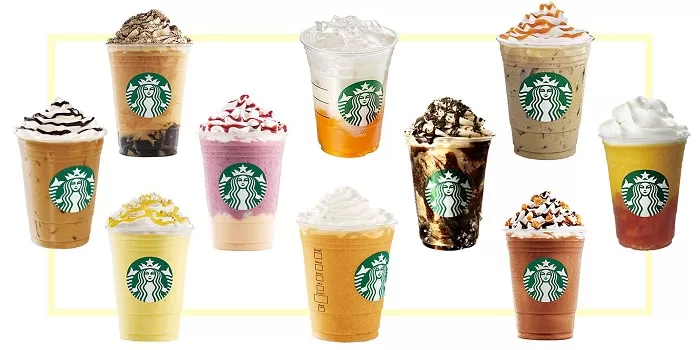
Brand Overview
Starbucks continues to be a global leader in the coffee and beverage sector, with its exceptional ability to foster brand loyalty and adapt to changing consumer trends. Its success is largely driven by a combination of innovative product offerings and a strong customer experience, which include features like mobile ordering, drive-thru services, and a growing range of plant-based beverages. With a wide global presence and continued expansion, Starbucks is well-positioned to maintain its leading status in the premium coffee market in 2024, despite facing sustainability challenges and growing competition from local and emerging brands.
Performance Snapshot
| Metric | Score |
| Brand Awareness | 17 |
| Market Share | 16 |
| Product Quality | 15 |
| Innovation | 15 |
| Sustainability Practices | 9 |
| Financial Performance | 13 |
| Distribution Network | 8 |
| Customer Satisfaction | 8 |
| Total Score | 86 |
Metrics Breakdown
Brand Recognition & Loyalty (17 points):
Starbucks has a powerful brand presence and an emotionally loyal customer base, enhanced by consistent product offerings and personalised in-store experiences. The brand’s ability to connect with consumers ensures its top-of-mind status globally.
Market Share & Growth (16 points):
Starbucks continues its global expansion with a strong presence in both developed and emerging markets. The company also adapts to shifting consumer behaviours through mobile apps and delivery services, enhancing customer engagement and retention.
Product Quality & Innovation (15 points):
Starbucks has an edge in innovation, introducing new and exciting seasonal beverages and plant-based alternatives. Its continued development of a digital ecosystem, including mobile ordering and loyalty programs, positions Starbucks for sustained relevance in 2024.
Financial Performance (13 points):
Starbucks shows consistent profitability, bolstered by diverse revenue streams, from coffee sales to merchandise and licensing. Its financial health allows for ongoing investments in growth and innovation.
Sustainability & Ethical Practices (9 points):
While Starbucks has made notable strides with ethically sourced coffee and waste reduction initiatives, sustainability remains an area for improvement. With consumers increasingly valuing eco-friendly practices, Starbucks must enhance its packaging and energy usage to stay ahead of competitors.
Distribution Network & Reach (8 points):
Starbucks’ global distribution is strong, but there’s potential for greater expansion in emerging markets where competition from local brands is fierce. Strengthening its presence in these areas could fuel further growth.
Customer Satisfaction & Feedback (8 points):
Despite its strong brand loyalty, some customers have raised concerns over pricing and service consistency, especially with the shift to digital platforms. Ensuring a personalised experience at every touchpoint will be crucial as Starbucks continues to expand.
Unique Strategies & Highlights
Starbucks continues to thrive thanks to its strong emotional connection with consumers, driven by a consistent, premium product offering and an innovative approach to customer experience. The brand’s mobile app and loyalty programs are central to its consumer engagement, giving it a competitive edge in a digital-first world. Starbucks has also demonstrated its ability to stay relevant with plant-based drinks, offering a diverse range of options to meet the needs of health-conscious consumers. Despite these advantages, Starbucks must continue refining its sustainability practices, particularly around packaging and energy consumption, to stay in line with consumer expectations for eco-friendly businesses.
Final Thoughts
Starbucks remains a dominant force in the beverage market and is well-poised to remain relevant and successful in 2024. Its strengths in brand loyalty, market growth, and product innovation make it a standout among beverage brands to watch in the coming year. However, its ability to address sustainability concerns and expand its reach in emerging markets will play a significant role in its future success. Starbucks’ focus on sustainability and customer experience will be key factors as it adapts to the ever-evolving consumer landscape.
2. Pepsico: Iconic Brand Loyalty and the Challenge of Sustainability
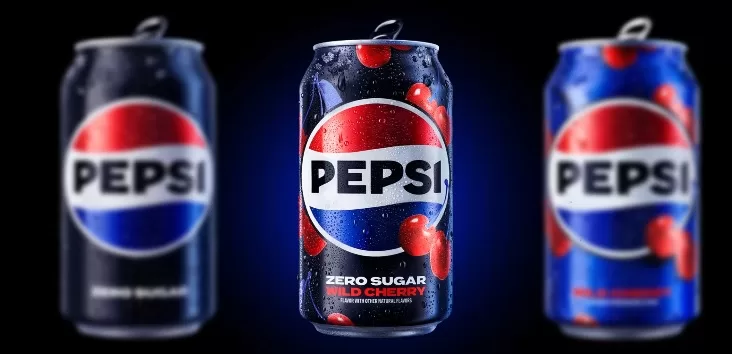
Source: Pepsi
Brand Overview
PepsiCo continues to be a dominant force in the North American beverage market with a portfolio that includes iconic brands like Pepsi, Mountain Dew, and Gatorade. Its strong brand recognition and loyal customer base are key contributors to its continued success. As the company adapts to evolving consumer preferences, its ongoing focus on healthier alternatives positions it well for future growth in North America.
Performance Snapshot
| Metric | Score |
| Brand Awareness | 18 |
| Market Share | 15 |
| Product Quality | 14 |
| Innovation | 14 |
| Sustainability Practices | 8 |
| Financial Performance | 14 |
| Distribution Network | 9 |
| Customer Satisfaction | 8 |
| Total Score | 86 |
Metrics Breakdown
Brand Recognition & Loyalty (18):
PepsiCo’s dominant presence in North America ensures a loyal consumer base, solidifying its position as a market leader. The recognition of its brands across the continent is an undeniable strength.
Market Share & Growth (15):
PepsiCo remains a top player in the North American beverage sector, with a strong market share, though future growth will require focusing on health-conscious trends and sustainability.
Product Quality & Innovation (14):
PepsiCo’s expansion into healthier beverage options like low-sugar, plant-based drinks, and functional beverages reflects its agility in responding to evolving consumer demands, especially in North America.
Financial Performance (14):
PepsiCo continues to perform well financially, benefiting from diverse revenue streams, including its snacks and beverage sectors, with strong contributions from the North American market.
Sustainability & Ethical Practices (8):
While PepsiCo has progressed with sustainability, North American consumers are increasingly pushing for brands to be more transparent in their ethical practices, especially regarding plastic waste.
Distribution Network & Reach (9):
PepsiCo’s established North American distribution network is a significant strength, but opportunities lie in expanding its reach further into emerging markets and regional preferences.
Customer Satisfaction & Feedback (8):
Despite its loyal following, PepsiCo faces challenges in addressing the sustainability concerns and product transparency issues raised by North American consumers.
Unique Strategies & Highlights
PepsiCo stands out in North America with its innovative approaches to expanding its health-conscious product lineup, including plant-based beverages and low-sugar alternatives. Its commitment to sustainability initiatives, such as improving water efficiency and reducing plastic use, aligns with the growing consumer demand for eco-friendly practices. PepsiCo’s extensive distribution network and brand loyalty position it as a leader in the North American beverage market. However, it must continue evolving to meet the changing demands of a more health-conscious and sustainability-driven consumer base.
Final Thoughts
PepsiCo’s robust position in North America makes it a brand to watch in 2024, as it continues to adapt to the evolving trends of health consciousness and sustainability. The brand’s ability to diversify and innovate within the beverage sector ensures its relevance in the competitive landscape. Moving forward, PepsiCo will need to strengthen its sustainability efforts and address customer concerns to remain a dominant force in North America.
1. Coca-Cola: Market Leadership and Environmental Challenges in North America
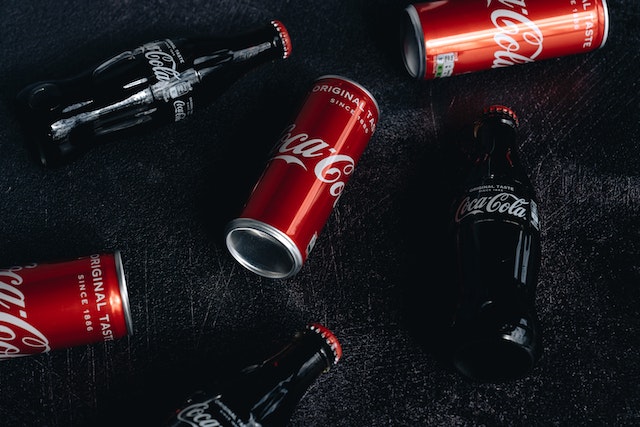
Source: Pexels
Brand Overview
Ranked No. 1 in the Top 10 Beverage Brands in North America to Watch in 2024, Coca-Cola continues to dominate the global beverage market. With unparalleled brand recognition and a loyal customer base, Coca-Cola’s consistent product quality and wide-reaching distribution network continue to set it apart. The brand’s innovation, including new healthier options and strategic collaborations with lifestyle brands like Kith, keeps it aligned with evolving consumer preferences. Despite challenges related to health trends and sustainability, Coca-Cola’s established presence in North America ensures its continued influence in the beverage sector.
Performance Snapshot
| Metric | Score |
| Brand Awareness | 20 |
| Market Share | 18 |
| Product Quality | 13 |
| Innovation | 13 |
| Sustainability Practices | 7 |
| Financial Performance | 15 |
| Distribution Network | 10 |
| Customer Satisfaction | 8 |
| Total Score | 91 |
Metrics Breakdown
Brand Recognition and Loyalty (20): Unmatched brand recognition and emotional connection with customers, built over decades of consistent messaging, product quality, and global reach, solidify its position as the leading beverage company.
Market Share and Growth (18): Significant market share, with operations in over 200 countries, ensures dominance in both developed and emerging markets. Its broad product portfolio and consistent brand engagement help maintain its leadership despite growing competition.
Product Quality and Innovation (13): Coca-Cola offers a range of classic beverages while investing in healthier options like low-calorie and sugar-free drinks to stay relevant. However, accelerating innovation in healthier beverages is crucial to meet shifting consumer demands.
Financial Performance (15): Coca-Cola’s financial performance remains strong, driven by diversified revenue streams, strategic acquisitions, and a vast global distribution network. This solid financial foundation enables the company to maintain its leadership and drive further growth.
Sustainability and Ethical Practices (7): Despite progress in sustainability, Coca-Cola faces challenges with packaging waste, carbon emissions, and the growing demand for eco-friendly practices. To meet rising consumer expectations, the company must accelerate efforts to align its operations with sustainability goals.
Distribution Network and Reach (10): With operations in 200+ countries, Coca-Cola enjoys a vast distribution network, giving it a significant global edge. To sustain growth, the company must focus on expanding its presence in emerging markets.
Customer Satisfaction and Feedback (8): While Coca-Cola enjoys high consumer satisfaction, growing concerns around health and environmental issues are affecting its reputation. Addressing these concerns and enhancing transparency could further strengthen brand loyalty.
Unique Strategies/Highlights
- Coca-Cola has long relied on emotional branding and loyalty-building marketing campaigns that connect with consumers on a personal level.
- Diversification into healthier beverages (e.g., low-calorie, sugar-free options) reflects the brand’s adaptability, but it still has work to do to lead in this area.
Coca-Cola is expanding its digital presence with e-commerce and delivery services, catering to the on-demand economy.
Emerging Trends in the Beverage Industry
As we move into 2024, key trends are shaping the beverage sector:
- Health-conscious choices: Consumers are opting for low-sugar, plant-based, and functional drinks, prompting brands like PepsiCo and Coca-Cola to expand their healthier offerings.
- Sustainability: Eco-friendly packaging and ethical sourcing are becoming essential, with brands like Starbucks leading the way.
- Tech Innovation: Mobile apps and AI are enhancing personalisation and convenience, with Starbucks and Coca-Cola embracing digital solutions.
These trends reflect the industry’s shift toward wellness, sustainability, and tech-driven experiences.
Beyond 2024: Shaping the Future of Beverages
The top beverage brands in North America for 2024 are leading the way with innovation, consumer-focused strategies, and adaptability. Their commitment to healthier choices, sustainability, and technological advancements is reshaping the market. As consumers demand more personalised, ethical, and health-conscious products, these brands are well-positioned to stay ahead of the curve. Keep an eye on them as they continue to define the future of the beverage industry.


















































